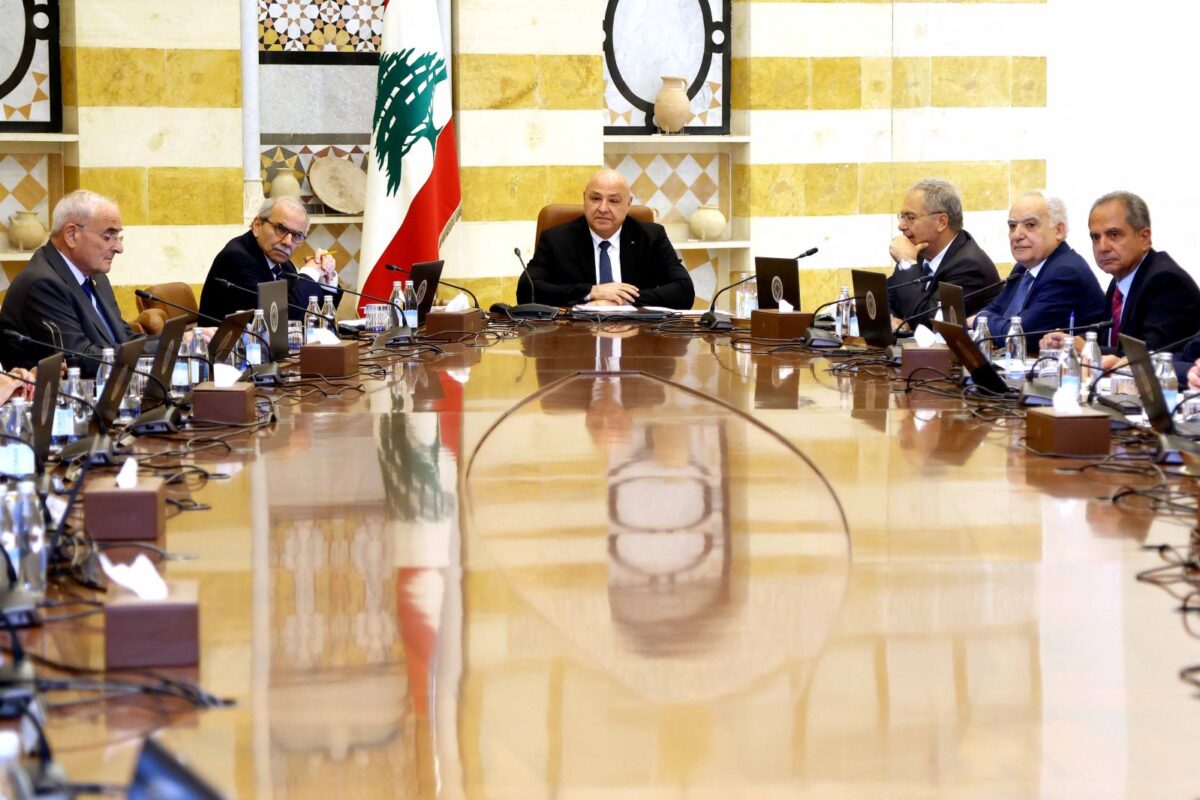
The Lebanese cabinet recently convened a session hailed by some as “historic” — an opportunity to place the issue of Hezbollah’s weapons squarely on the table and affirm the monopoly of arms by the state. But in truth, there was nothing historic about the gathering. It was yet another hollow ritual in a broken political system, another chance wasted by a leadership that refuses to lead.
The very notion that a sovereign state like Lebanon must debate whether it has the right to control all weapons on its territory is absurd — and telling. If the future of national sovereignty hinges on one meeting, that alone is proof that the state has long ceased to exist in any functional sense.
Over the past six months, we’ve heard all the familiar slogans: commitments to implement UN Resolution 1701, to enforce the constitution, to launch a dialogue on national defense strategy. And yet not a single concrete step has been taken — no mechanism, no timeline, no political will. The presidency, the premiership, and the speakership — all pretend to uphold sovereignty, while enabling its erosion.
Speaker Nabih Berri, Hezbollah’s senior partner, continues to play the role of the “reluctant participant” — entering and exiting the state at will, always ready to protect the status quo that keeps his influence intact. He and his allies know that every delay buys Hezbollah more time, and every vague gesture of dialogue drains the issue of urgency.
But time is precisely what Lebanon no longer has. The international community, led by the United States, has made it clear: this is the final moment to act. Special envoy Tom Barrack’s message was not vague diplomacy — it was a deadline. Either the state asserts itself, or Lebanon is left to collapse under the weight of its contradictions.
Yet even now, the Lebanese cabinet continues to avoid the crux of the matter. Instead of confronting Hezbollah’s weapons head-on, ministers wrapped themselves in euphemisms and pretexts — debating semantics while the republic crumbled. They did not chart a disarmament path. They did not propose a credible timeline. They did not even take responsibility. What they offered was theater — a shallow attempt to appear sovereign while remaining utterly beholden to an armed militia.
Aoun and the cabinet simply threw the hot potato at the Lebanese army, by issuing orders to the LAF to provide the cabinet for a plan to disarm Hezbollah, White in fact the cabinet should have simply issued a statement saying that Hezbollah’s arms are illegitimate and that the LAF needs to round them up, not the other way round.
Hezbollah, for its part, has made its intentions clear. It has no plans to disarm, no respect for the constitution, and no loyalty to Lebanon’s democratic institutions. Its weapons are not aimed at Israel — they are aimed at Lebanese sovereignty, Lebanese reform, and the very idea of statehood. It obstructs appointments, paralyzes the judiciary, smuggles through illegal ports, and uses its arms to preserve a mafia order dressed up as resistance.
This is not an external plot against Lebanon. This is a Lebanese tragedy authored by Lebanese actors — one in which Hezbollah writes the script, and the cabinet dutifully recites its lines.
Let us be blunt: there is no reform, no recovery, no rescue plan for Lebanon while an Iranian-backed militia holds a veto over the state. The fiction that Hezbollah’s arms protect Lebanon has collapsed. What they protect now are political fiefdoms, criminal enterprises, and a culture of impunity.
And as for the so-called proposed national dialogue — it is nothing but a simple con. Moving the issue from the cabinet to the presidential palace, from institutions to roundtables, is a deliberate tactic to bury it. Lebanon doesn’t need more dialogue. It needs decisions. It needs sovereignty.
President Joseph Aoun was not elected to manage decline. He was not chosen to placate killers and smugglers. He was elected, in part, because he was a former military commander — someone expected to show spine, not surrender. But as of now, he governs like a man terrified of offending the very forces dismantling the state he swore to protect.
If this government believes its performance is enough to save Lebanon, it is gravely mistaken. The international community is watching. So are the Lebanese people. The illusion of deterrence is gone. What remains is a republic ruled by fear and hesitation.
The choice is no longer between peace and war — it is between sovereignty and extinction.
This cabinet has chosen cowardice. And in doing so, it may have sealed Lebanon’s fate.
Makram Rabah is the managing editor at Now Lebanon and an Assistant Professor at the American University of Beirut, Department of History. His book Conflict on Mount Lebanon: The Druze, the Maronites and Collective Memory (Edinburgh University Press) covers collective identities and the Lebanese Civil War. He tweets at @makramrabah







